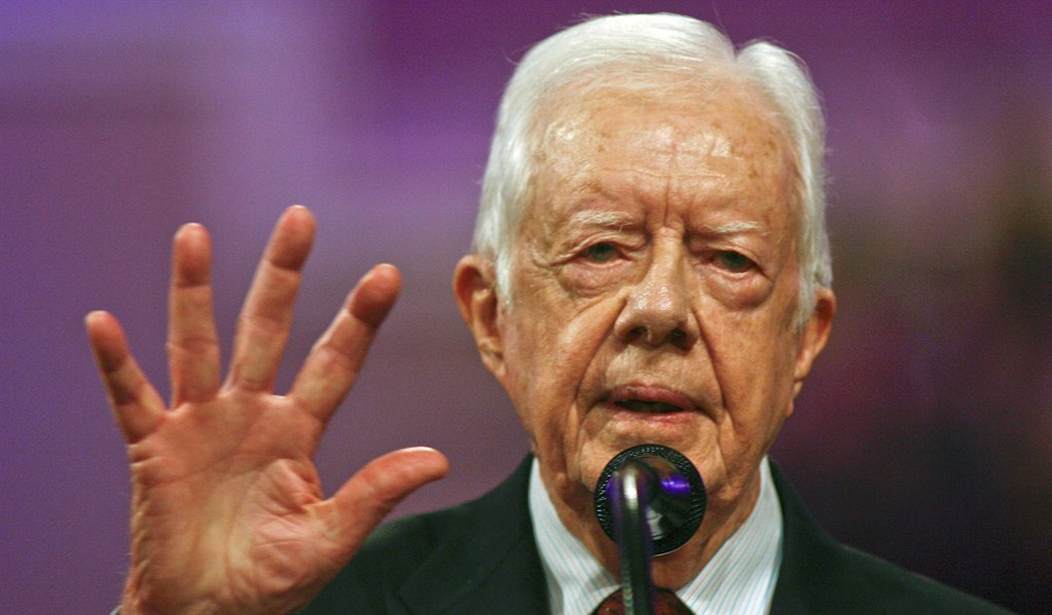When Jimmy Carter began attending the First Baptist Church in Washington after becoming president, I thought it a unique opportunity to better understand his faith. He taught a Sunday School class as he had done for years in his native Plains, Georgia, and I joined it.
Carter was an excellent teacher. He knew the Scriptures well and on one occasion he asked me to teach the class, which was an experience I shall never forget.
After the service, we went downstairs for coffee. There was a basket on the table for people to pay 25 cents for the beverage. Carter reached in his pocket and found no money. He asked wife Rosalynn if she had brought any change. She had not. I said, "How far have we declined when the president of the United States can't pay for coffee?" I gave him a quarter and he laughed.
Years later after he had left the presidency we met at a function and I reminded him of that time in the church basement. He reached in his pocket and this time had a quarter which he handed to me and said, "we're even." I kept that quarter on my desk for years, unable to prove he gave it to me, but we both knew.
When Carter announced during the 1976 presidential campaign that he was a born-again Christian, most of the media were flummoxed. John Chancellor of NBC News announced that he had looked up the term and "it is nothing new." If he had read the Bible that Carter read he would have known this. Carter's announcement and faithful church attendance attracted many newly energized evangelical voters which helped him defeat Gerald Ford in the November election.
Recommended
By 1980, most of those voters had abandoned him in favor of Ronald Reagan, not because they necessarily doubted Carter's declaration of his faith, but because they disagreed with his application of it. Carter had made Sarah Weddington part of his administration. Weddington was the attorney who argued the Roe vs. Wade case before the Supreme Court, resulting in the overturning of all state election laws restricting the procedure. He also hosted a "White House Conference on Families," which included same-sex couples, anathema to most conservative Christians.
No one should question the sincerity of another person's faith, but its application is fair game for analysis. Mark Tooley of the Institute for Religion and Democracy says Carter's faith was more in line with liberal Protestantism: "Although he professed admiration for Christian realist Reinhold Niebuhr, Carter's accommodation of foreign adversaries, pseudo-pacifism, undermining of allies, and endless faith in personal diplomacy all more resembled the Religious Left's utopian aspirations. It's appropriate that Carter's controversial UN Ambassador, Andrew Young, whom he removed for prematurely meeting PLO chief Yasir Arafat, later served as president of the National Council of Churches," a theologically and politically liberal organization.
In 1979, at the National Prayer Breakfast in Washington, Roman Catholic Bishop Fulton J. Sheen began his remarks this way: "Fellow sinners." Turning to Carter, he added "and that includes you, Mr. President." Carter laughed along with the audience.
Carter's faithfulness in church attendance inspired many who had given up the practice to return to Sunday worship. He was a man of good character, kindness and other characteristics Scripture calls "fruits of the spirit." Whether you agreed with its application or not (and his focus on human rights while president and helping build houses for the poor after leaving office were in line with the commands of Jesus), his faith was genuine.
He also paid his debts. The quarter he gave me proves it.

























Join the conversation as a VIP Member